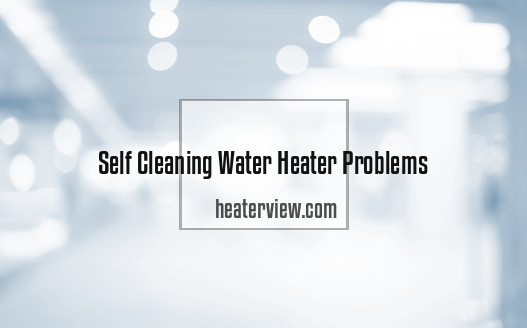If your self-cleaning water heater isn’t working properly, there are a few things you can do to troubleshoot the issue. First, check to make sure that the water heater is turned on and that there is power to it. Next, check the water heater’s filters and clean them if they are dirty. Finally, check the water heater’s venting to make sure it is not blocked. If you are still having problems with your self-cleaning water heater, you may need to call a plumber.
What Are Some Possible Problems That Can Occur With A Self-cleaning Water Heater?

If your water heater has a self-cleaning feature, it’s important to understand how it works and what could go wrong. Here are some possible problems that can occur with a self-cleaning water heater:
1. The self-cleaning feature may not work properly.
If the self-cleaning feature on your water heater doesn’t work properly, it could mean that sediment and other build-up isn’t being removed from the tank. This can lead to a number of problems, including decreased efficiency and increased risk of corrosion.
2. The water heater could be damaged.
If the self-cleaning feature on your water heater is damaged, it could cause the unit to overheat or even catch fire. This is a serious safety hazard that should be addressed immediately.
3. The water heater could use more energy.
Self-cleaning water heaters typically use more energy than traditional models. This means that your utility bills could be higher than usual.
4. The water heater could make noise.
Self-cleaning water heaters can sometimes be noisy, especially when they first start up. If the noise is bothersome, you may want to consider turning off the self-cleaning feature.
5. The water heater could leak.
If the self-cleaning feature on your water heater is damaged, it could cause the unit to leak. This could lead to water damage in your home and potentially even mold growth.
Self-cleaning water heaters can be a great way to keep your water heater clean and free of sediment. However, it’s important to be aware of the potential problems that can occur. If you have any concerns, be sure to contact a professional for help.
How Can You Tell If A Problem With A Self-cleaning Water Heater Is Serious?
If your self-cleaning water heater isn’t working properly, there are a few things you can do to troubleshoot the issue. First, check the power source to make sure the unit is plugged in and receiving power. Next, check the water supply to ensure there is enough water pressure and that the water heater’s inlet screen isn’t clogged. If the power and water supply are both fine, then the problem may be with the self-cleaning mechanism itself. To clean the unit, follow the manufacturer’s instructions. If the problem persists, then it’s time to call a professional.
What Are Some Tips For Troubleshooting Self-cleaning Water Heater Problems?
If your self-cleaning water heater isn’t working properly, there are a few things you can do to troubleshoot the problem. First, check the water heater’s thermostat to make sure it’s set to the correct temperature. If the thermostat is set too low, the water heater won’t be able to reach the self-cleaning temperature. Next, check the water heater’s sediment trap to make sure it’s clean. Sediment can build up over time and prevent the water heater from reaching the self-cleaning temperature. Finally, check the water heater’s heating element to make sure it’s working properly. If the heating element isn’t working, the water heater won’t be able to reach the self-cleaning temperature. If you’re still having problems after troubleshooting the self-cleaning water heater, you may need to call a plumber.
How Often Should A Self-cleaning Water Heater Be Serviced?
If you have a self-cleaning water heater, you may be wondering how often you should have it serviced. Here is a step-by-step explanation of how often you should have your self-cleaning water heater serviced:
1. Every three to five years, you should have your self-cleaning water heater serviced by a professional. This will ensure that it is running properly and efficiently.
2. If you notice any problems with your self-cleaning water heater, such as it not heating water properly or taking longer to heat water, you should have it serviced as soon as possible.
3. If you do not have your self-cleaning water heater serviced regularly, it may not function properly and could pose a safety hazard.
4. If you have any questions about how often you should have your self-cleaning water heater serviced, you should consult your owner’s manual or contact the manufacturer.
Conclusion
There are many self cleaning water heater problems that can occur. The most common problems are sediment build up and corrosion. These problems can be caused by a variety of factors, including hard water, improper installation, and lack of maintenance. If you have a self cleaning water heater, it is important to regularly check it for these problems and to perform the necessary maintenance to prevent them.
Hopefully, you are clear now on self cleaning water heater problems. If you still have any questions, feel free to comment below.

